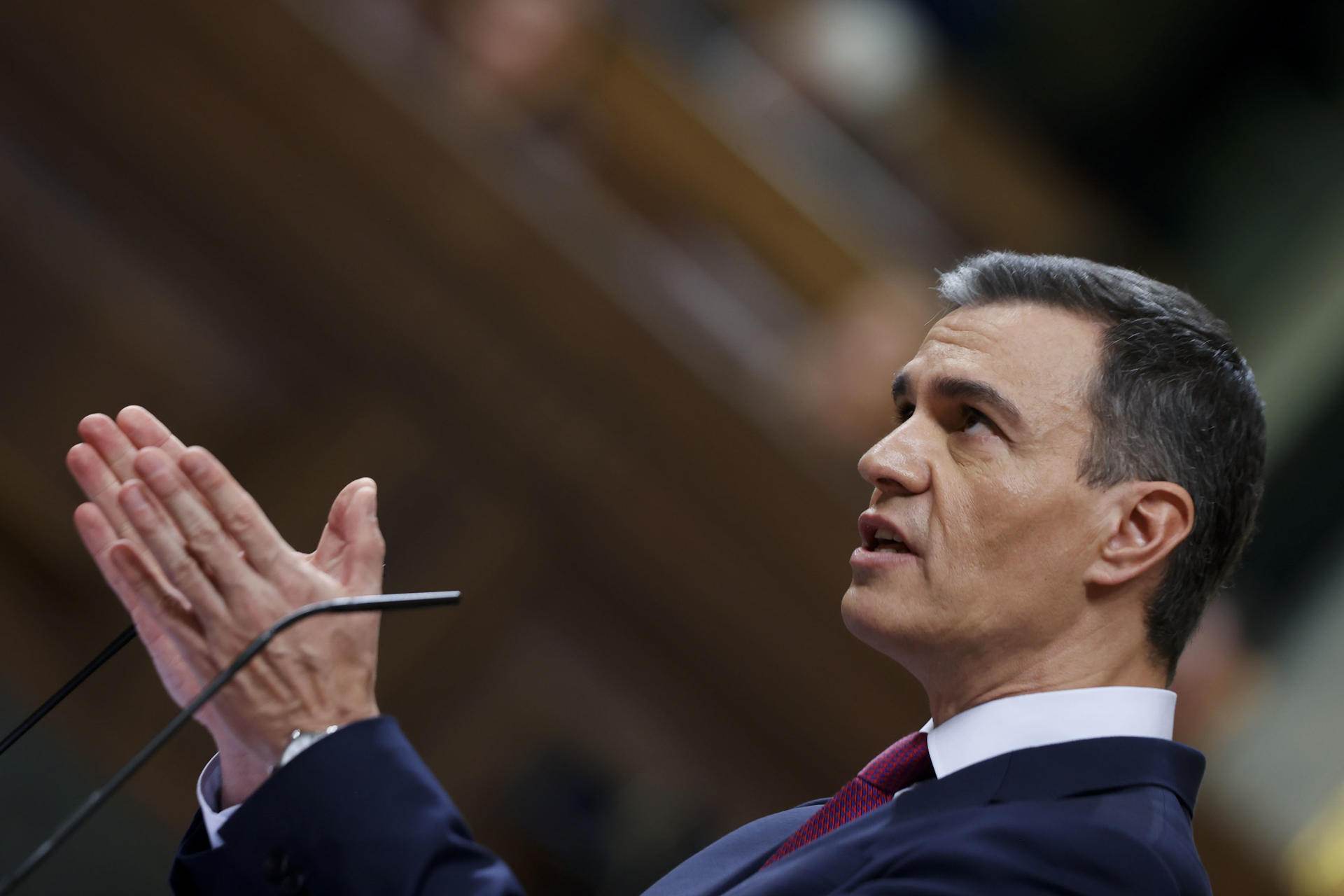More than an hour and twenty minutes of speech had to pass before Pedro Sánchez referred to the subject that had generated most anticipation in his address as Socialist (PSOE) candidate to be returned as Spanish prime minister. "The amnesty will serve to overcome the fracture" of the independence process, he argued this Thursday amid indignant shouts from the opposition People's Party (PP). The acting PM defended the "legality" and constitutionality of the proposed law, and recalled that the PP pardoned 16 members of Catalan paramilitary group Terra Lliure when José María Aznar governed. During his speech, Sánchez sought to erect himself as the only alternative to Spanish nationalism of the extreme right, and he affirmed that, thanks to his tenancy of the Moncloa government palace, "the Constitution is now respected in all the territories" of the Spanish state: "People prefer the Catalonia of 2023 to that of 2017," he said.
The acting Spanish prime minister asserted his wish to dedicate part of his government agenda to "territorial cohesion", and thus he committed himself - for the umpteenth time - to reform the autonomous communities funding model. It was after this that he referred to Catalonia, stating that he understands that a sizable part of the Catalan public are pro-independence. He contrasted his own approach with the "PP recipe" of "guaranteeing the unity" of the Spanish state in the face of the political conflict between Catalonia and Spain: "It is imposition and social tension compared to dialogue, coexistence and forgiveness".
It was then that he defended, for the first time in front of the Congress of Deputies, the amnesty law to wipe the slate clean for independentists facing legal action. What's more, he took for granted that it will move forward, after his party, in the end, was alone in the chamber in registering the draft legislation agreed with Junts. In order to appeal to the Spanish public who are, in the first instance, mostly opposed to an amnesty for 309 pro-independence Catalans - a figure calculated by the Socialists - Sánchez assured that "the amnesty will not be an attack on the Constitution, but a demonstration of its strength."
"It's a measure that a significant part of Catalan society is calling for," Sánchez asserted, specifying that 80% of "Catalan political representatives" approve of the exoneration of independence process-related offences committed over a period of almost 12 years. The Socialist leader recalled that his strategy to achieve "complete re-encounter" with Catalonia has so far included the 2021 pardons of the nine pro-independence leaders and also the linguistic diversification of the Congress of Deputies, allowing the use of Catalan, Basque and Galician.
The only alternative to extremist tension
Pedro Sánchez began his speech by addressing the current tension in right-wing Spanish nationalist circles due to the pact between the PSOE and the pro-independence parties for an agreement that includes the investiture and the amnesty. After greeting the chamber in Spanish, Catalan, Basque and Galician, the candidate to continue in the Spanish prime ministerial seat fiercely defended the right to demonstrate, and proclaimed his absolute "respect" for those who these days have rallied at different points around the Spanish state - prominent among them the headquarters of the PSOE itself, in Madrid's Calle Ferraz - in a "peaceful" manner.
But, without stating it explicitly, he blamed the PP and Vox for the violence and rioting that has occurred at many of these demonstrations. He regretted that Alberto Núñez Feijóo had, "like Pablo Casado", decided to "lift the cordon sanitaire" on Santiago Abascal's far-right party. "He joined the reactionaries of Le Pen and followed the model of Isabel Díaz Ayuso", said the acting PM. In fact, Pedro Sánchez even referred to the Community of Madrid president Díaz as the "intellectual leader of the PP".
In response to this, Pedro Sánchez asserted that since his entry into the Moncloa, "Spain is more prosperous today". The Socialist leader also defined his executive as "the only barrier against the extreme right". He urged the chamber, then, to curb "the retrograde right" and to "pave the way for tolerance and coexistence".
"The tone is in line with the greatness of the candidate", retorted PP sources, who criticized that in the first hour of the speech, Pedro Sánchez made no mention of his "submission to the pro-independence parties, which is what has brought us to where we are today".

